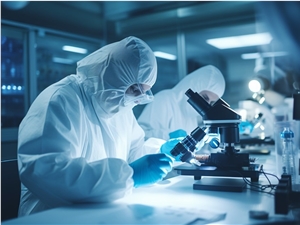At the age of seven, Demetri Maxim witnessed his mother's suffering as she underwent dialysis due to kidney failure. Two years later, his mother successfully received a kidney transplant. Although the surgery restored her normal life, it was not the end — Maxim inherited polycystic kidney disease (PKD) and faced similar challenges.

Image source note: The image is AI-generated, provided by the licensing service Midjourney
In the United States, about one in seven people suffer from chronic kidney disease (CKD), and 10% of these cases are caused by genetic diseases. Since high school, Maxim has been dedicated to finding a cure. In 2021, the journal Nature published a study showing that CRISPR technology could reverse PKD in mice, which strengthened Maxim's belief. He pursued a graduate degree in computational biology at Stanford University and conducted kidney research under the guidance of Professor Vivek Bhalla.
Although Maxim believes gene therapy can reverse PKD, the key challenge lies in how to deliver the drug safely and effectively to the affected cells. To solve this problem, he founded the biotech startup Nephrogen in 2022. The company uses artificial intelligence and advanced screening technologies to develop a special delivery system for gene-editing drugs, delivering them precisely to kidney diseased cells. Nephrogen was among the 20 finalists at the 2025 TechCrunch Disrupt conference.
After three years of development, Maxim claims that Nephrogen has successfully created a delivery mechanism that is 100 times more efficient than currently FDA-approved "vectors" in transporting drugs to the kidneys. Next, Nephrogen plans to advance its new delivery mechanism and developed drugs into clinical studies, which are expected to begin in 2027.
To support the clinical research, Nephrogen is conducting a $4 million seed funding round. Faced with the challenges of PKD firsthand, Maxim decided to participate in the clinical trial. He admitted that during the illness, he often felt back pain, frequent medical visits, and existing medications could not effectively slow down the condition, only increasing urine frequency. He was always at risk of worsening symptoms and needing dialysis, making Nephrogen's research results particularly important.
If Nephrogen's treatment proves successful, it may completely cure Maxim's PKD. For those who want to learn more about Nephrogen and see more startup projects, we welcome you to attend the TechCrunch Disrupt conference in San Francisco on October 27-29.
Key points:
🌟 Maxim experienced his mother's suffering from dialysis due to kidney disease as a child and inherited polycystic kidney disease (PKD).
🧬 Nephrogen uses artificial intelligence and advanced technologies to develop an efficient drug delivery system, which is 100 times more efficient than FDA-approved vectors.
🚀 The company plans to conduct clinical studies in 2027 and is currently raising $4 million in seed funding.









